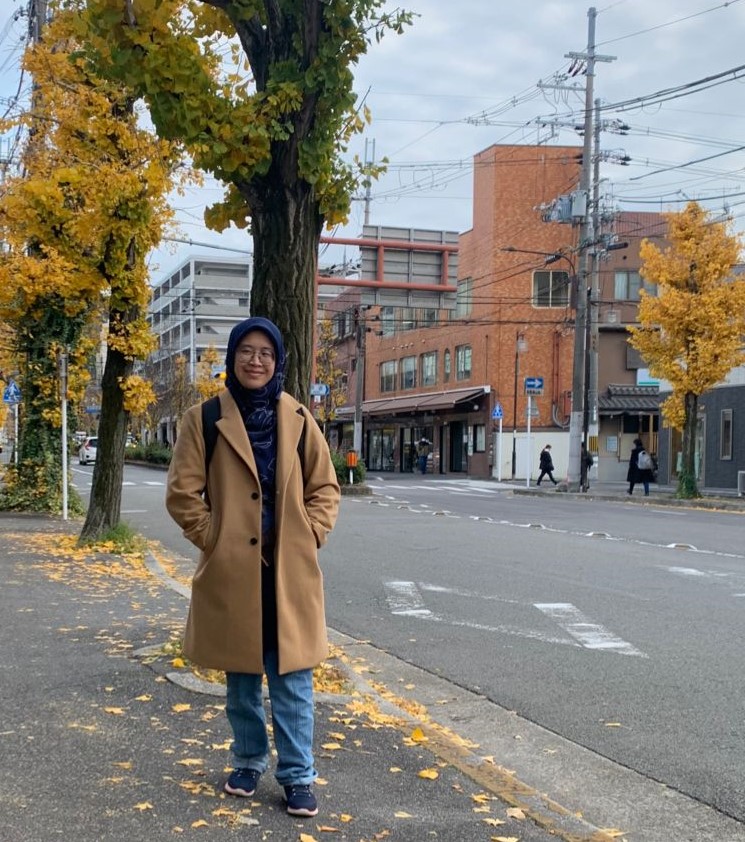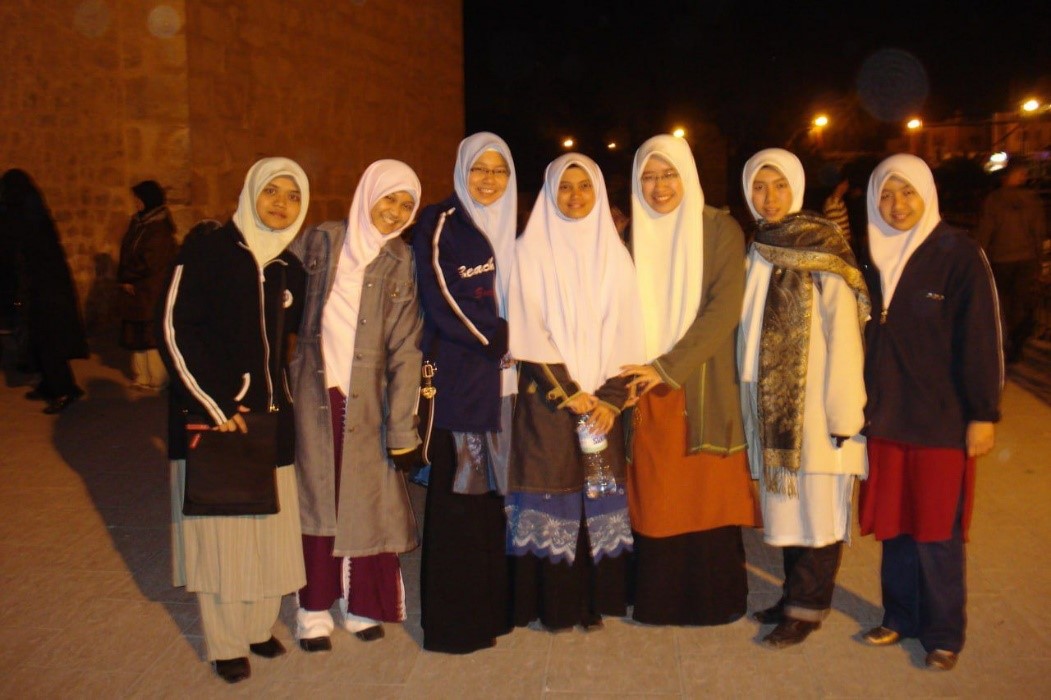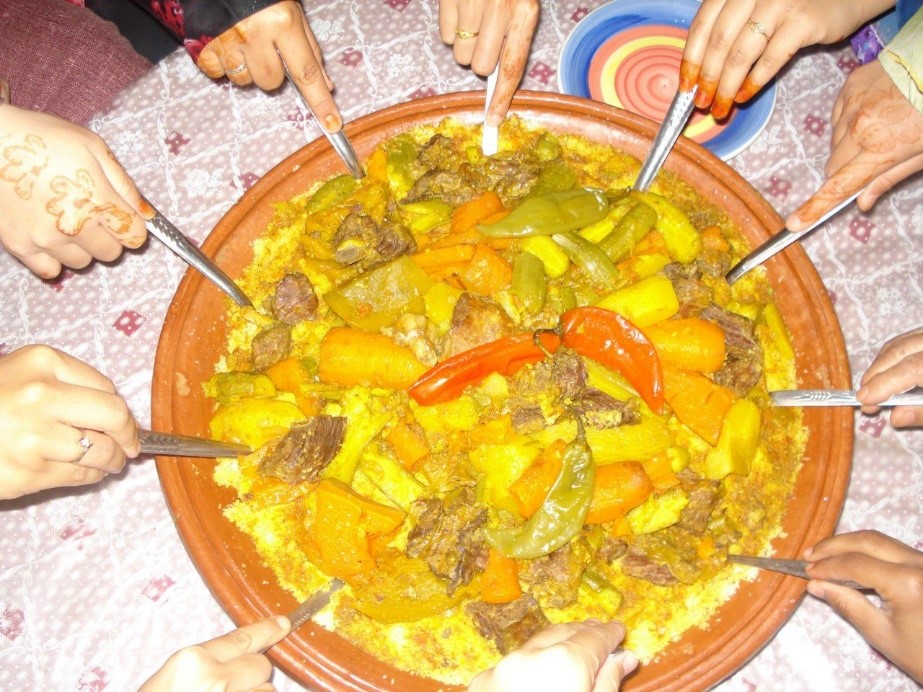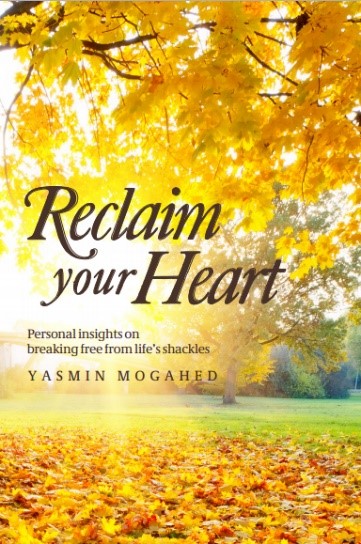Lily Hanefarezan Binti Asbulah
VISITOR’S VOICE
Interview with Lily Hanefarezan Binti Asbulah »
Faculty of Islamic Studies, Universiti Kebangsaan Malaysia (UKM)
Language and Linguistics, Education

What are your favorite things?
Travelling
I really love traveling because it lets me explore different places and learn about various cultures and histories. This helps me think more critically, which is useful for my research on indigenous knowledge and environmental conservation. Each trip I take is a chance to understand more about traditional ways of taking care of the environment and their historical backgrounds.
Taking photos
Photography is a tool for capturing moments that hold cultural and environmental significance. Through visual storytelling, I document the landscapes and communities I encounter during my research. These images become powerful illustrations that convey the beauty of traditional ecological knowledge in action, bridging the gap between academic discourse and public understanding.
Watching movies
Watching movies is something I enjoy because it’s a way for me to escape into different worlds and enhance my critical thinking skills. My favorite movies include “3 Idiots” and “Bajrangi Bhaijaan.”
Interview
Empowering Jawi in Kyoto:
Through A Distinguished Lens
01
Please tell us about your research.
In my research at CSEAS, I focus on categorizing “1001 Masalah” from an Islamic Perspective, sourced from the magazine, Qalam. This unique exploration delves into the voices of Muslims in the Malay world during the 1950s and 1960s. The fascination lies in systematically analyzing 702 dialogues using the Atlas.ti software, revealing the challenges faced by Muslims. By uncovering the Islamic perspective within the data, my research aims to shed light on nuanced insights, offering a comprehensive understanding of how these issues were discussed and navigated in the Malay world.
02
Can you share with us an episode about any influential people, things, and places you have encountered whilst doing your research?
One particularly influential episode during my research journey was my time spent studying in University of Ibn Tofail, Kenitra in Morocco. Over the course of three years, this place became a powerful shaping ground for me, instilling resilience akin to the Arab spirit. Immersing myself in the local culture included savoring traditional foods like Tajine and Cous-Cous, providing a sensory connection to the community’s history. Engaging with Morrocan community and navigating the unique challenges of the educational landscape left an indelible mark on my personal and professional development. Morocco, with its rich history, vibrant community, and flavorful traditional cuisine, played a crucial role in shaping my resilience and perspective.

03
How do you overcome the difficulties in putting together the results of your research into a research paper or book?
To overcome the challenges of compiling my research findings into a paper or book, I adopt a collaborative and consultative approach. I actively engage in discussions with my mentor, seeking guidance and insights from someone experienced in the field. Additionally, I collaborate with experts in the subject matter to ensure a well-rounded perspective and enhance the quality of my work.
04
Do you have any must-have gear for field research and writing?
Essential tools for my field research and writing include a high-performance laptop, which facilitates data analysis and writing tasks. Additionally, a portable workspace setup is prioritized to establish a conducive and ergonomic environment for efficient work in diverse field conditions. These provisions are fundamental to ensuring a seamless and productive research experience.
05
Do you have any essential reads (books) that you can recommend to younger people?
Throughout my PhD journey, I have found solace in reading the book Reclaim Your Heart by Yasmin Mogahed. This book serves as a guiding companion for navigating life’s challenges and uncertainties, addressing relatable topics such as attachments, the true essence of love, and the hurdles that we encounter. By exploring themes of personal growth and spirituality, the book inspires readers to strengthen their connection with their Creator, providing profound insights on empowerment, especially for women. I highly recommend this read to anyone caught in the cycle of persistent inner disappointment, as it offers a roadmap to reclaiming joy and purpose.
06
What is your ideal image of a researcher, and do you have any advice for those who aim to become researchers?
An ideal researcher is driven by curiosity, rigorous in their methodology, and compassionate, always integrating ethical considerations into their work. They are innovative, seeking new solutions, and communicate effectively, understanding the impact of their research on society. Aspiring researchers should cultivate these qualities, along with continuous learning and a commitment to ethical practices, to thrive in the ever-evolving landscape of discovery.
07
What are your future ambitions as a scholar?
As an academic dedicated to cultural heritage studies, my focus is on the exploration and analysis of Jawi manuscripts and Arabic texts. My objective is to delve deeply into the historical and linguistic aspects of these documents, thereby gaining a more profound understanding of the interconnections between Jawi and Arabic traditions. This endeavor aims not only to preserve this invaluable knowledge, but also to disseminate it widely, thereby contributing significantly to the enrichment of our cultural legacy.
08
Why do you choose CSEAS, or what is your expectation here?
I chose CSEAS because of Kyoto University’s standing as one of the top 100 universities in the world. Inspired by my mentor, Assoc Prof Yamamoto Hiroyuki, who, despite being Japanese, is deeply interested in Malay culture. His fascinating research on Jawi and Malay culture sparked my curiosity, motivating me to explore and contribute to the understanding of my own civilization. I am grateful to CSEAS for providing this opportunity to delve into and share the richness of my heritage. I eagerly anticipate collaborating and becoming a part of CSEAS in the future.
(December 2023)
Lily Hanefarezan Binti Asbulah is a Distinguished Visiting Senior Lecturer of CSEAS
from December 2023 to February 2024
Thank you for taking the time to read the Visitor’s Voice interview.
Your feedback is important to us, so please let us know what you think.

